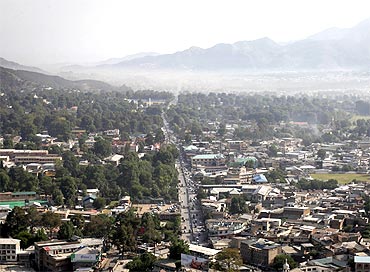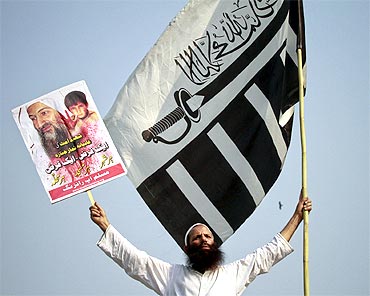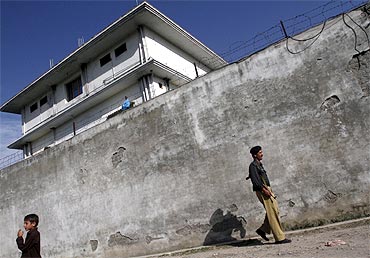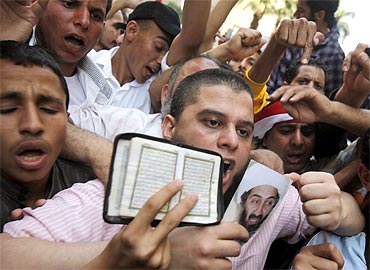 | « Back to article | Print this article |
Osama turned Al Qaeda into a MNC of terror
The documents seized from Osama bin Laden's compound in Pakistan's Abbottabad city in the May 2 raid confirm that the then Al Qaeda chief was obsessive about documenting everything, and that the terrorist organisation functioned like a multinational corporate company.
From its earliest days, Al Qaeda leaders insisted on receipts -- if fighters were buying a car for an operation, or even disc drives and floppy disks for their computers, they were required to return to base with a precise accounting of everything they had spent, the National Public Radio reports.
Experts say that was due to the influence of bin Laden, who got an undergraduate degree in economics and public administration before he became the ideological leader of Al Qaeda.
'Al Qaeda had a fixation with massive record-keeping'
"I think this treasure trove of intelligence reflects the fixation or the preoccupation that Al Qaeda always had with massive record-keeping," said Bruce Hoffman, a terrorism expert at Georgetown University.
That "may be an effective way to run any organisation, but also results in a windfall of intelligence to any counterterrorist agency or intelligence community charged with dismantling that organisation," he added.
In spite of those inherent risks, Al Qaeda was built in a way that it clearly had to create a paper trail, the report said, adding that with affiliates sprinkled around the world, and leaders who could only communicate intermittently, Al Qaeda's efficiency required a paper trail.
'They can't help themselves'
"There's almost this sense that they can't help themselves," said Lieutenant Colonel Reid Sawyer, the head of West Point's Combating Terrorism Centre.
"It's this idea that when you have a distributed movement, that you have to gain efficiencies in various means. And one way to do that is to keep very good records and to understand the disparate parts of your enterprise," he said.
Al Qaeda "didn't function as a traditional or typical terrorist organisation did. It functioned really like a multinational. On the eve of 9/11, for example, the State Department has stated that Al Qaeda had 60 offices worldwide. I mean, in essence it was a multinational," Hoffman said.
'Al Qaeda had excellent HR benefits'
In further proof of its corporate structure, as odd as it sounds, Al Qaeda had excellent HR benefits, the report said, noting that the seized documents showed that Al Qaeda paid an unusual amount of attention to its fighters and their families.
Married members got a salary of 108 dollars a month, and were allowed to have seven days of vacation for every three weeks worked, while bachelors got five days off a month.
The pay was smaller for single men and larger if the fighters had more than one wife, but now that the organisation has less money and is under such pressure, it is unclear whether the benefits are as generous as they used to be, the report added.
'It's important for them to name a leader'
Rick Nelson, a senior fellow at the Centre for Strategic and International Studies in Washington, sees Al Qaeda's next stage-succession as just as corporate as its other practices, with the only difference being that for Al Qaeda, there is more than just shareholder anxiety at stake.
"Right now, it's important for them to name a leader before they lose momentum. It's important for them to show they are operationally in control of the organisation, and they are not doing that," Nelson said.




